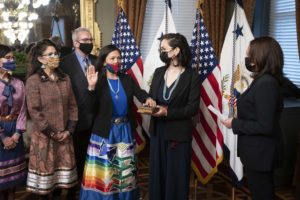The Georgetown Institute for Women, Peace and Security released a new report on the widespread use of conflict-related sexual violence (CRSV) and its devastating impacts on individuals and communities, which can last generations and undermine peace and security efforts.
Sexual violence is used as a weapon of war by combatants in conflict situations worldwide, decimating societies and fueling displacement. It remains a silent crime, with an estimated 80 percent of cases in conflict settings going unreported.
This fall, GIWPS convened leaders from Ukraine, Bosnia-Herzegovina, Kosovo, and Colombia to share lessons learned for responding to the global scourge of CRSV. Drawing on their insights, this report presents actionable policy recommendations for key stakeholders to hold perpetrators accountable, meet survivor needs, and follow through on their commitments to deliver justice. The report, authored by Jess Keller, was made possible with support from the Embassy of Germany in Washington, D.C.
Key Policy Recommendations
- Provide Urgent Survivor-Centered Medical and Psychosocial Services
- Provide Timely and Holistic Support: Deliver immediate survivor-centered assistance during armed conflict, including health care, legal assistance, and psychosocial support that addresses intersectional needs.
- Integrate and Innovate Services: Establish survivor support centers, secure digital platforms, and integrated “one-stop” relief centers in collaboration with civil society to deliver safe and confidential care.
- Monitor and Improve Delivery: Develop robust, evidence-based monitoring frameworks to assess the delivery of CRSV services and ensure interventions meet survivors’ priorities.
- Co-Create Evidence-Collection and Documentation Processes
- Design Survivor-Led Protocols: Engage survivors, frontline organizations, legal experts, and war crimes prosecutors to co-design standardized protocols for documenting CRSV, aligned with ‘Do No Harm’ principles and the Murad Code.
- Develop Secure and Ethical Data Practices: Develop clear protocols for data collection and sharing that prioritize survivor consent, identity protection, and data security.
- Conduct Robust Trainings: Conduct trauma-informed and gender-responsive CRSV trainings for health workers, community leaders, police officers, judges, prosecutors, and qualified psychologists to minimize the risk of re-traumatization.
- Bolster Local Capacity and Funding: Enhance capacity through direct flexible and sustained funding to civil society organizations, and particularly women-led organizations, who are leading evidence-collection and documentation efforts.
- Challenge Shame and Transform Stigma
- Amplify Survivor Voices: Promote public acknowledgment of CRSV survivors through official statements, exhibitions, media campaigns, and memorial events.
- Leverage Community Leadership: Partner with trusted religious and traditional leaders to challenge societal norms and stereotypes surrounding CRSV survivors.
- Target Outreach to Men and Boys: Tailor communication strategies to reach male survivors and ensure men and boys are addressed, acknowledged, and included in all CRSV interventions.
- Deploy Community-Level Interventions: Develop locally-driven models for shifting stigmatizing attitudes and supporting survivors’ reintegration, such as art-based therapies, community counseling programs, and raising awareness through media and documentaries.
- Pursue Criminal Justice and Accountability
- Enhance Justice Mechanisms: Strengthen the capacity of national and subnational justice institutions to prosecute perpetrators of CRSV, ensuring compliance with international humanitarian law principles and standardized procedures for investigations and prosecutions.
- Prohibit Amnesty for Crimes: Prohibit amnesty provisions in CRSV cases and reinforce state obligations to international law, including under CEDAW and the WPS Agenda, in all peace negotiations and transitional justice processes.
- Utilize Sanctions Regimes: Explicitly list sexual violence as a standalone criterion in sanctions regimes and include targeted sanctions for perpetrators and enablers of CRSV in new and revised National Action Plans on WPS.
- Prioritize Interim and Comprehensive Reparations
- Implement Wartime Reparations: Initiate urgent wartime reparations to address immediate needs and extend support, recognition, and compensation to survivors during and after a conflict.
- Recognize Survivors’ Legal Status: Grant legal recognition to survivors as civilian victims of war, including for children born of wartime rape, without a deadline for status recognition.
- Establish Comprehensive Reparations Programs: Design holistic reparations frameworks in collaboration with survivors that integrate medical, psychosocial, and economic empowerment measures, such as capacity-building initiatives and income-generating activities.
Report Launch
Pathways to Justice and Accountability for Conflict-Related Sexual Violence
Tuesday, December 10, 2024
10:00 a.m. – 11:15 a.m.
RSVP here.
On Human Rights Day, join women working to achieve justice for survivors in Ukraine, Kosovo, Bosnia-Herzegovina, and Colombia at an event to share findings from an important new GIWPS report, “Pathways to Justice and Accountability for Conflict-Related Sexual Violence,” supported by the Embassy of Germany in Washington, D.C. Expert panelists will draw from their experiences across conflicts to discuss lessons learned for addressing the global scourge of CRSV, and offer insights into new avenues for accountability and action that meet survivor needs.
featuring
Adrijana Hanušić
CRSV Documentation and Transitional Justice Expert, Bosnia-Herzegovina
Alisa Kovalenko
Member of the SEMA Ukraine Network, Film Director, and Member of the Ukrainian Volunteer Army, Ukraine
Feride Rushiti
Executive Director, Kosova Rehabilitation Center for Torture Victims, Kosovo
María Susana Peralta Ramón
Lawyer, Special Jurisdiction for Peace, Colombia
Jess Keller
Lead Report Author, Georgetown Institute for Women, Peace and Security (GIWPS)
moderated by
Ambassador Melanne Verveer
Executive Director, Georgetown Institute for Women, Peace & Security (GIWPS)
Hosted by the Georgetown Institute for Women, Peace and Security and the Embassy of Germany in Washington, D.C.
“Sexual violence remains a silent crime, with an estimated 80 percent of cases in conflict settings going unreported.”
Acknowledgements
Recommendations were generated in consultation with women working to achieve justice for survivors in Ukraine, Kosovo, Bosnia-Herzegovina, and Colombia who attended a workshop held in Warsaw, Poland in September 2024. Special thanks to the workshop participants for their time, insights, and contributions, and their steadfast solidarity with survivors of CRSV, including Kateryna Cherepakha, Iliriana Gashi, Adrijana Hanusic, Sabiha Husić, Isabel Cristina Jaramillo Sierra, Alisa Kovalenko, Kateryna Levchenko, Anastasiya Nenka, Valeriia Palii, María Susana Peralta Ramón, Feride Rushiti, Veprore Shehu, Arbnore Shehu Bunjaku, Olena Sotnyk, and Oksana Yakushko. This convening and the resulting report was made possible through the generous support of the Embassy of the Federal Republic of Germany in Washington, D.C.




